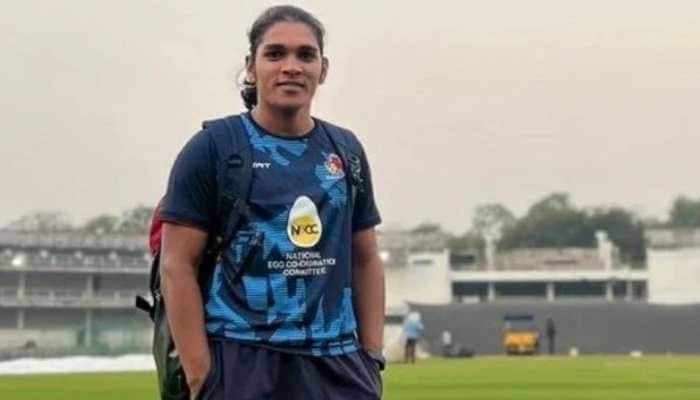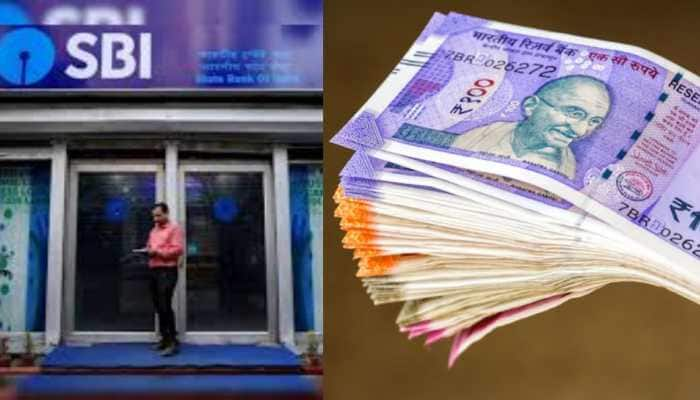World Health Day 2013: Hypertension affects over 100 mn adults in India
Prof Dr. Prabhakaran talked on the critical consequences of hypertension and how it is linked to heart attack and other chronic diseases.
Trending Photos
)
 With the increase in cases of high blood pressure worldwide, and to raise awareness about the chronic disease amongst people, WHO has chosen ‘Hypertension’ as the theme for this year’s World Health Day.
High blood pressure, also called raised blood pressure or hypertension, if left uncontrolled, can cause blindness, irregularities of heartbeat and heart failure. World health Day is observed on the 7th of April each year. The vital goal of this year’s World Health Day is to reduce heart attacks and strokes.
In an exclusive interview to Salome Phelamei of Zeenews.com, Prof Dr. Prabhakaran, M.D., DM (Cardiology), MSc, FRCP, FNASc, Executive Director, Centre for Chronic Disease Control (CCDC), New Delhi, India, and Principal Investigator, Centre of Excellence in Prevention and Control of Cardio-metabolic Diseases in South Asia, talked on the critical consequences of hypertension and how it is linked to heart attack and other chronic diseases.
Dr. Prabhakaran has been Principal investigator and Co-Principal Investigator of several national and international research projects including, projects funded by the NIH, Wellcome Trust, British Heart Foundation, World Bank and WHO. He is a Consultant and Technical Advisor to WHO (SEARO) on prevention and control of cardiovascular and non-communicable diseases, a member of several Indian and international committees in CVD prevention and research. He is a fellow of the Royal College of Physician, London, the National Academy of Sciences India and Population Health Research Institute, Canada. He is visiting Professor at the London School of Hygiene & Tropical Medicine and Adjunct Professor at the Rollins School of Public Health, Emory University.
What is hypertension? How serious is it?
Blood pressure measures the force pushing outwards on your arterial walls as the blood circulates in the body. High blood pressure means that your blood is being pumped at a relatively higher pressure than normal through your arteries. Hypertension is a chronic condition that leads to consistent blood pressure above 140 mmHg systolic (pressure exerted on the arteries when heart muscle is contracting) and/or 90 mmHg diastolic (pressure exerted on the arteries when the heart is relaxed between beats).
The higher blood pressure stretches the arteries, which are made of muscle and semi-flexible tissues. In individuals with hypertension, the tissue that makes up the wall of the arteries often gets stretched beyond its healthy limit and leads to vascular weaknesses, vascular scarring, increased risk of blood clots, increased cholesterol and plaque build-up on arteries, tissue and organ damage from narrowed and blocked arteries, and increased work load on the circulatory system. The increased work load of the heart can result in damage to the heart muscles and valves and can result in heart failure.
Signs and symptoms of hypertension:
Hypertension is a chronic condition and a “silent killer”. It essentially means that you may never experience symptoms related to higher blood pressure. A person with hypertensive crisis (very high blood pressure) which is uncommon in the current era may experience severe headaches, anxiety, shortness of breath, nosebleeds, facial flushing, blood spots in the eyes and dizziness. It is therefore essential to check your blood pressure at least twice in a year and not to make the mistake of assuming symptoms will alert you to the problem of high blood pressure.
What are the consequences of hypertension?
Chronic hypertension can damage the heart and the arteries supplying blood to it. It can cause heart attacks, stroke, heart failure, aortic dissection (splitting of aorta), kidney damage, vision loss, erectile dysfunction (a type of impotence), memory loss, fluids in the lungs, and diseases of the peripheral arteries.
How is high blood pressure related to heart attack and other chronic diseases? What is the burden of the disease on the society?
Hypertension affects one in every four adults worldwide. More than half of coronary heart diseases and two third of both strokes and heart failure events are directly attributable to high blood pressure or hypertension. In India, hypertension affects more than 100 million individuals. While the awareness of hypertension is poor in India, the treatment and control rates are abysmally low.
What are the risk factors and ways to prevent high blood pressure?
Hypertension results from a complex interaction of several factors. The exact mechanism that leads to hypertension is poorly understood. The most important contributory factors are high salt intake, low fruit intake, high alcohol consumption, low physical activity and obesity. Relatively rarer causes include kidney diseases, frequent intake of pain killers, hormonal problems and others.
There are several known ways to control your blood pressure. They are: (a) eating a better diet with daily intake of total salt below 5 grams, (b) regular physical activity especially weight bearing exercise of at least 30-45 minutes per day, (c) maintaining an ideal body weight, (d) increasing fruit and vegetable intake, (e) avoiding tobacco and alcohol and (f) comply with medication prescriptions if you are on treatment.
What is sudden cardiac arrest? How is it treated?
It is the sudden, unexpected loss of heart function, breathing and consciousness. Sudden cardiac arrest usually results from an electrical disturbance in your heart that disrupts its pumping action, stopping blood flow to the rest of your body. It is a medical emergency and if not treated quickly, causes sudden death.
Administering cardiopulmonary resuscitation or even simple chest compression can improve the chances of survival until emergency personnel arrive. Cardiac arrests are potentially reversible and often require defibrillation.
Of late, sudden death due to cardiac arrest in young people is becoming more common, which is of grave concern. How can it be prevented? How does a person know if they are at risk for sudden cardiac arrest?
Pre-existing heart conditions such as coronary heart disease, heart attack, enlarged heart, valvular heart disease, congenital heart disease and electrical problems of the heart can lead to sudden cardiac arrest. Smoking is one of the most important risk factors for sudden death in young individuals. Using illegal drugs, such as cocaine or amphetamines also increase the risk of sudden cardiac arrest.
Although there are no definite ways to prevent sudden cardiac arrest, regular checkups, screening for heart disease and living a heart-healthy lifestyle are useful strategies. In some people with a known high risk of sudden cardiac arrest — such as those with a heart condition — doctors may recommend anti-arrhythmic drugs or an implantable cardioverter-defibrillator (ICD) as primary prevention.
According to the latest WHO data published in 2011, coronary heart disease is the top killer, while hypertension figures in top 20 causes of death in India. Has there been any progress in dealing with these diseases and also in reducing the mortality rates? What is the current scene of cardiovascular diseases, particularly, sudden cardiac arrest in our country?
Undeniably, hypertension is the leading cause of mortality in India, resulting from coronary heart disease and stroke. It affects more than 100 million adults in India. While the number of individuals with hypertension is rapidly increasing in India, the detection, awareness, treatment and control rates are very poor. If we apply the current rate of age-speci?c cardiovascular disease mortality rate, there will be a 42% increase in number of deaths in the productive working age group by 2030, due to demographic changes alone. Failure to hold cardiovascular risk factors, especially hypertension rates to even their current high levels will exact a tremendous price in the Indian workforce over the next two decades. The Government of India has initiated the National Programme for prevention of Cardiovascular Diseases, diabetes, stroke and Cancer. In this programme, prevention has been given primacy.
With the increase in cases of high blood pressure worldwide, and to raise awareness about the chronic disease amongst people, WHO has chosen ‘Hypertension’ as the theme for this year’s World Health Day.
High blood pressure, also called raised blood pressure or hypertension, if left uncontrolled, can cause blindness, irregularities of heartbeat and heart failure. World health Day is observed on the 7th of April each year. The vital goal of this year’s World Health Day is to reduce heart attacks and strokes.
In an exclusive interview to Salome Phelamei of Zeenews.com, Prof Dr. Prabhakaran, M.D., DM (Cardiology), MSc, FRCP, FNASc, Executive Director, Centre for Chronic Disease Control (CCDC), New Delhi, India, and Principal Investigator, Centre of Excellence in Prevention and Control of Cardio-metabolic Diseases in South Asia, talked on the critical consequences of hypertension and how it is linked to heart attack and other chronic diseases.
Dr. Prabhakaran has been Principal investigator and Co-Principal Investigator of several national and international research projects including, projects funded by the NIH, Wellcome Trust, British Heart Foundation, World Bank and WHO. He is a Consultant and Technical Advisor to WHO (SEARO) on prevention and control of cardiovascular and non-communicable diseases, a member of several Indian and international committees in CVD prevention and research. He is a fellow of the Royal College of Physician, London, the National Academy of Sciences India and Population Health Research Institute, Canada. He is visiting Professor at the London School of Hygiene & Tropical Medicine and Adjunct Professor at the Rollins School of Public Health, Emory University.
What is hypertension? How serious is it?
Blood pressure measures the force pushing outwards on your arterial walls as the blood circulates in the body. High blood pressure means that your blood is being pumped at a relatively higher pressure than normal through your arteries. Hypertension is a chronic condition that leads to consistent blood pressure above 140 mmHg systolic (pressure exerted on the arteries when heart muscle is contracting) and/or 90 mmHg diastolic (pressure exerted on the arteries when the heart is relaxed between beats).
The higher blood pressure stretches the arteries, which are made of muscle and semi-flexible tissues. In individuals with hypertension, the tissue that makes up the wall of the arteries often gets stretched beyond its healthy limit and leads to vascular weaknesses, vascular scarring, increased risk of blood clots, increased cholesterol and plaque build-up on arteries, tissue and organ damage from narrowed and blocked arteries, and increased work load on the circulatory system. The increased work load of the heart can result in damage to the heart muscles and valves and can result in heart failure.
Signs and symptoms of hypertension:
Hypertension is a chronic condition and a “silent killer”. It essentially means that you may never experience symptoms related to higher blood pressure. A person with hypertensive crisis (very high blood pressure) which is uncommon in the current era may experience severe headaches, anxiety, shortness of breath, nosebleeds, facial flushing, blood spots in the eyes and dizziness. It is therefore essential to check your blood pressure at least twice in a year and not to make the mistake of assuming symptoms will alert you to the problem of high blood pressure.
What are the consequences of hypertension?
Chronic hypertension can damage the heart and the arteries supplying blood to it. It can cause heart attacks, stroke, heart failure, aortic dissection (splitting of aorta), kidney damage, vision loss, erectile dysfunction (a type of impotence), memory loss, fluids in the lungs, and diseases of the peripheral arteries.
How is high blood pressure related to heart attack and other chronic diseases? What is the burden of the disease on the society?
Hypertension affects one in every four adults worldwide. More than half of coronary heart diseases and two third of both strokes and heart failure events are directly attributable to high blood pressure or hypertension. In India, hypertension affects more than 100 million individuals. While the awareness of hypertension is poor in India, the treatment and control rates are abysmally low.
What are the risk factors and ways to prevent high blood pressure?
Hypertension results from a complex interaction of several factors. The exact mechanism that leads to hypertension is poorly understood. The most important contributory factors are high salt intake, low fruit intake, high alcohol consumption, low physical activity and obesity. Relatively rarer causes include kidney diseases, frequent intake of pain killers, hormonal problems and others.
There are several known ways to control your blood pressure. They are: (a) eating a better diet with daily intake of total salt below 5 grams, (b) regular physical activity especially weight bearing exercise of at least 30-45 minutes per day, (c) maintaining an ideal body weight, (d) increasing fruit and vegetable intake, (e) avoiding tobacco and alcohol and (f) comply with medication prescriptions if you are on treatment.
What is sudden cardiac arrest? How is it treated?
It is the sudden, unexpected loss of heart function, breathing and consciousness. Sudden cardiac arrest usually results from an electrical disturbance in your heart that disrupts its pumping action, stopping blood flow to the rest of your body. It is a medical emergency and if not treated quickly, causes sudden death.
Administering cardiopulmonary resuscitation or even simple chest compression can improve the chances of survival until emergency personnel arrive. Cardiac arrests are potentially reversible and often require defibrillation.
Of late, sudden death due to cardiac arrest in young people is becoming more common, which is of grave concern. How can it be prevented? How does a person know if they are at risk for sudden cardiac arrest?
Pre-existing heart conditions such as coronary heart disease, heart attack, enlarged heart, valvular heart disease, congenital heart disease and electrical problems of the heart can lead to sudden cardiac arrest. Smoking is one of the most important risk factors for sudden death in young individuals. Using illegal drugs, such as cocaine or amphetamines also increase the risk of sudden cardiac arrest.
Although there are no definite ways to prevent sudden cardiac arrest, regular checkups, screening for heart disease and living a heart-healthy lifestyle are useful strategies. In some people with a known high risk of sudden cardiac arrest — such as those with a heart condition — doctors may recommend anti-arrhythmic drugs or an implantable cardioverter-defibrillator (ICD) as primary prevention.
According to the latest WHO data published in 2011, coronary heart disease is the top killer, while hypertension figures in top 20 causes of death in India. Has there been any progress in dealing with these diseases and also in reducing the mortality rates? What is the current scene of cardiovascular diseases, particularly, sudden cardiac arrest in our country?
Undeniably, hypertension is the leading cause of mortality in India, resulting from coronary heart disease and stroke. It affects more than 100 million adults in India. While the number of individuals with hypertension is rapidly increasing in India, the detection, awareness, treatment and control rates are very poor. If we apply the current rate of age-speci?c cardiovascular disease mortality rate, there will be a 42% increase in number of deaths in the productive working age group by 2030, due to demographic changes alone. Failure to hold cardiovascular risk factors, especially hypertension rates to even their current high levels will exact a tremendous price in the Indian workforce over the next two decades. The Government of India has initiated the National Programme for prevention of Cardiovascular Diseases, diabetes, stroke and Cancer. In this programme, prevention has been given primacy.Stay informed on all the latest news, real-time breaking news updates, and follow all the important headlines in india news and world News on Zee News.
Advertisement
Live Tv
Advertisement







)
)
)
)
)
)
)
)
)
)
